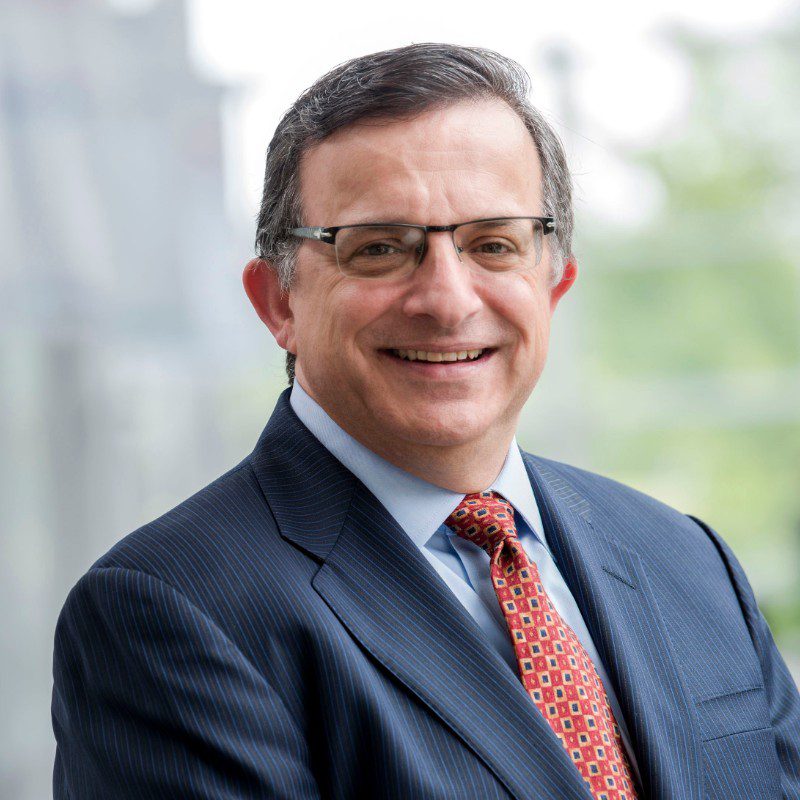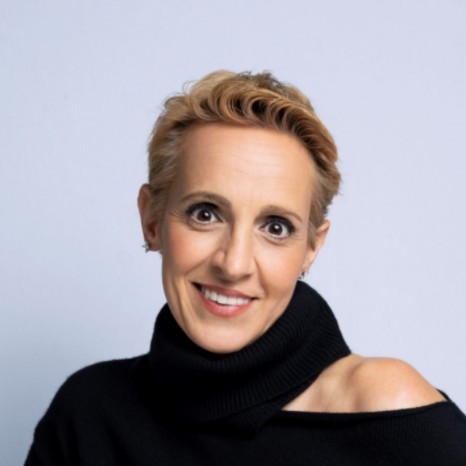CHICAGO — Summit Therapeutics is prepared to take on the world’s best-selling drug.
On Thursday, the biotech’s stock nearly tripled after reporting that its cancer drug ivonescimab beat Merck’s blockbuster Keytruda in a head-to-head, China-based Phase 3 trial in non-small cell lung cancer. It’s the first time any drug has outperformed Keytruda in one of cancer’s biggest killers and biggest markets.
Endpoints News spoke to Summit CEO Bob Duggan on the sidelines of the American Society of Clinical Oncology’s annual meeting in Chicago. Duggan, a biotech veteran who sold Pharmacyclics and its BTK inhibitor Imbruvica to AbbVie in a $21 billion deal, said Summit is prepared to bring its drug to market on its own or partner with other drugmakers to do so.
The company is running additional trials outside of China with the goal of readying for US approval of ivonescimab, a PD-1 and VEGF bispecific inhibitor it’s developing with Akeso. And Akeso and Summit are running 19 trials of the drug as they race toward a showdown with Keytruda, which last year sold $25 billion and has become a cornerstone of oncology.
“If we barely beat them, it’s a problem,” Duggan said. “If we clock them good, ask the patients what they want to do. Ask the doctors what they want to do.”
Next up are the full data from the China trial, which Summit said it plans to present at a medical meeting later this year. The biotech is also sponsoring two global Phase 3 trials of the drug, with the first set to complete enrollment this year.
So what does this mean for Merck?
 Eliav Barr
Eliav Barr“If it’s good for patients, it’s good for me. I’m happy with that,” Eliav Barr, CMO for Merck Research Laboratories, said when asked about Summit’s announcement.
“But first you have to see the data,” he continued. “Press releases are such as they are.”
Keytruda’s David and Goliath moment
Summit is focused on proving it can beat Keytruda, but that’s going to be a tough battle. Merck CEO Rob Davis thinks Keytruda, which has been approved in 39 indications and 17 different tumor types, is “not a repeatable model,” according to remarks he made Friday.
Merck has tried pairing Keytruda with a VEGF inhibitor in lung cancer, but the studies didn’t pan out. A readthrough to Summit and Akeso’s asset, though, is difficult because ivonescimab is a bispecific inhibitor that goes after both PD-1 and VEGF versus a co-administered approach.
Merck’s booth at the 2024 American Society of Clinical Oncology meeting. Photo by Kyle LaHucik for Endpoints News.
Click on the image to see the full-sized version
Duggan described Barr’s comments as the “right approach.”
“Competition is good when you look at humankind, but you have to have that big picture in mind, and then they will strive to do better,” Duggan said. “They’ve done a hell of a job. They have really, really serviced their patients with their product. If you just copied what they did, you wouldn’t be too far off from a bullseye.”
Summit and Akeso are exploring ivonescimab in nearly 20 trials, with lung cancer just one of their many ambitions. The drug received its first approval last month, in China, for patients with second-line EGFR mutant NSCLC.
Summit is awaiting results from its own global, Phase 3 study in patients with EGFR mutant positive second-line advanced or metastatic NSCLC, called HARMONi. That indication is part of the biotech’s “fast-to-market strategy,” according to Summit CMO Allen Yang, and the company plans to use the data for approval. Summit is also running a separate global Phase 3, called HARMONi-3, in first-line squamous metastatic NSCLC, which has a larger patient population.
The biotech said it doesn’t plan to rely solely on the China-only data. The FDA’s lead oncologist, Rick Pazdur, has repeatedly said the agency wants data from multi-regional studies. But the China data will likely still play a critical role in regulatory discussions.
“Just because it was in China doesn’t mean we can just toss it aside,” Barr said.
Summit paid Akeso $500 million upfront in 2022 for access to ivonescimab in the US, Europe and other regions. Duggan joined Summit’s board in 2019 and became CEO in 2020.
A precedent set by Pharmacyclics
Duggan and his team are well-versed in pharma partnerships, and Summit’s current leadership includes former Pharmacyclics executives like co-CEO Maky Zanganeh and CFO Manmeet Soni.
 Maky Zanganeh
Maky ZanganehFour years before the AbbVie acquisition, the biotech passed on an offer from Celgene and instead struck a deal with Johnson & Johnson for up to $975 million.
“When we did the deal with Johnson, they were really looking to get into oncology and they were tiny. And if they were big, you tend to want to go with the bigs, but they’ve got four or five other competing drugs and yours may get lost,” Duggan said. “We shuffled some people out. Celgene was one of them because they [wanted] to combine us only with Revlimid, and how’s that going to really work?”
Duggan said he’s open to dealmaking for ivonescimab, though he is quick to note that better data often mean better deals.
“The more accurate data — verified, validated — the better you are,” he said. “It’s something that we’re always looking at, and companies will come to us and present us with their plan [of] how well they can do with it. It’s got to be a win for patients. It’s got to be a win for the partner and got to be a win for us.”
That said, the company has runway while it waits for concrete data. As of March 31, it had $157 million in cash, equivalents, restricted cash and short-term investments, enough to take operations through the first quarter of 2025.
“There’s no scarcity of money, but money is attracted to good results,” Duggan said. “As long as you’re generating good results, [and they’re] well communicated, you have vast access to cash on favorable terms. That’s how we’ve always played the game.”
